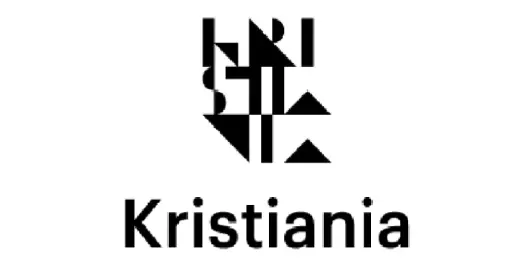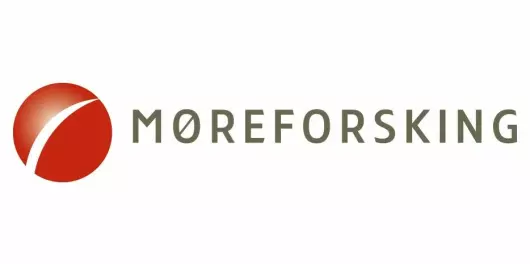Job description
Universitetet i Oslo
The University of Oslo is Norway’s oldest and highest rated institution of research and education with 28 000 students and 7000 employees. Its broad range of academic disciplines and internationally esteemed research communities make UiO an important contributor to society.
The geosciences are the studies of the planet Earth and its comparative planetology; the atmosphere, the hydrosphere and cryosphere, the Earth's surface and its interior. The Department of Geosciences conducts research and teaching in most of the domains of geoscience; geology, geophysics, physical geography, geomatics, hydrology, meteorology and oceanography. The Department is the broadest geoscience research and education environment in Norway. The Department encompasses five sections; Meteorology and Oceanography, Geography and Hydrology, Geology and Geophysics, Physics of Geological Processes (Njord centre) and one Centre of Excellence CEED - Centre of Earth Evolution and Dynamics.
The Department aims to contribute to the new and important UN Sustainability Development Goals.The staff consists of 40 professors and associate professors, in addition to postdoctoral fellows, PhD students, researchers, technical- and administrative staff. Approximately number of employees are 240 at the Department.
An early stage researcher (ESR) PhD position is available at the Department of Geosciences at the University of Oslo as part of the Marie Curie Innovative Training Network “S2S-FUTURE”. The fellowship period is 3 years. Starting date no later than 1 August, 2020.
No one can be appointed for more than one PhD Research Fellowship period at the University of Oslo.
Research objectives
Glaciations are high-frequency, high-intensity perturbations of surface mass redistribution, which imply a complete disruption of landscape dynamics and sediment routing from source to sink. The Pleistocene stratigraphy of the North Atlantic margins is characterized by thick sequences of glacigenic debris flows and megaslides as well as interglacial sediment layers. These sediments, which serve as high-resolution archives of climate changes and the Fennoscandian ice-sheet dynamics, are now thoroughly documented by geophysical surveys and well data, but large uncertainties about the timing and modalities of sediment production/transfer/deposition throughout glacial-interglacial cycles still exist.
The project aims to elucidate on the dominant marine and terrestrial processes that lead to the formation of such sedimentary sequences.
A key objective is to evaluate if sediment production increases during glaciation, or if observed higher sedimentation rates along the margins are a result of enhanced sediment transport. The candidate will establish paleo-topographical reconstructions throughout the Pleistocene, and these reconstructions will be tested against the observed sedimentary record.
Presentation of the research project (cooperative aspect)
This PhD position is within the framework of a European ITN project named S2S-FUTURE: SIGNAL PROPAGATION IN SOURCE TO SINK for the FUTUre of earth Resources and Energies involving 15 PhD positions.
Under the supervision of Ivar Midtkandal (Associate Professor, University of Oslo, Department of Geosciences),
The candidate will map sedimentary successions from available high-resolution 3D seismic data, and link them to existing well data. He/she will also use ice dynamics and landscape evolution numerical models in a forward approach to relate the observed sequences to the physical processes of glacial and fluvial erosion throughout Pleistocene glacial-interglacial cycles.
Project website: https://cordis.europa.eu/project/rcn/224709/factsheet/en
Research group website: https://sites.google.com/view/earthsurfacedynamics/home
The PhD student will be also involved in scientific/soft-skills meetings and in research activities conducted in other laboratories/companies from Europe and associated countries.
An important component of the training will be the participation to 3 main major “Summer Institutes”:
Summer 2020: “Dragonstone” – South-Pyrenees Spain and France: an innovative combination of field excursion and computer modeling of surface processes from source to sink.
Summer 2021: “The Factory” – Norway, Great Britain and Switzerland: field visit of modern S2S systems and course intensive program of technical and soft skills to accelerate the students’ research, write and present their results, consolidate their profiles and develop concrete plans for their future.
Summer 2022: “Inside Africa” – South-Africa: an immersion of ESRs in the modern source-to-sink system of a continental-scale large river, the Orange in Southern Africa, with high economic implications for mining industries.
In addition to these major milestones of the program, the PhD students will1) continuously develop their core research skills via their own research project locally and within the network while at secondments and conferences2) receive a mandatory amount of hard and soft-skills training specific to their own doctoral school, along with mentoring by joint supervising bodies3) use EGU conferences both as dissemination events for ESRs results and network events for progress reports and evaluations4) collaborate into practical activities aimed at network-structuring legacy deliverables.
The goal of S2S-FUTURE is to understand, quantify and model the sediment routing system from the sediment production (source) to the sediment deposition (sink); its tectonic and climatic controls; and to establish generic rules for a full understanding of signals propagation in S2S systems for building predictive models of sediment location and characteristics. These studies of S2S systems require interdisciplinary approaches combining geomorphology, sedimentology and stratigraphy, geochemistry, tectonic and paleoclimatology coupling observations, quantifications and process modelling. All these skills are integrated in the S2S-FUTURE project.
The objectives of S2S-FUTURE have been designed with primary societal implications in the domains of water, carbon-derived energy, sustainable geological energy and geological storage of non-geological energy, waste geological storage, mineral resources, and building materials. These points have become crucial for sustainable investment and development according to several of the United Nations Sustainable Development Goals such as SDG#6 (Clean water and sanitation), SDG#7 (Affordable and clean energy) and SDG#13 (Climate action) among others.
Qualification requirements
- The candidate should be in the first four years of their research career. They should not have a doctoral degree and fulfil the eligibility criteria and mobility rule (see below)
- The candidate should hold or be about to obtain a Master’s degree in Earth Science or relevant field.
- Foreign completed degree (M.Sc.-level) corresponding to a minimum of four years in the Norwegian educational system
- Excellent technical skills including field experience in sedimentology, geological mapping, seismic stratigraphy. Sequence stratigraphic experience will be considered an advantage.
- Previous experience working with clastic fluvial and marine sediments, including sequence stratigraphy and grain size assessment will be an advantage.
- The ability to work both as part of a team, and independently, coupled with excellent communication, organizational and problem-solving skills
- Availability to travel for training events and research secondments.
Grade requirements:
The norm is as follows:
- the average grade point for courses included in the Bachelor’s degree must be C or better in the Norwegian educational system
- the average grade point for courses included in the Master’s degree must be B or better in the Norwegian educational system
- the Master’s thesis must have the grade B or better in the Norwegian ed-ucational system
- Fluent oral and written communication skills in English
http://www.mn.uio.no/english/research/phd/application/application.html
The Faculty aims to be one of Europe’s leading centres for research, education and innovation by being a contender in the top echelons of research-intensive universities in Europe. The Candidate for this fellowship will be selected in accordance with this, and expected to be in the upper segment of their class with respect to academic credentials.
The purpose of the fellowship is research training leading to the successful completion of a PhD degree.
The fellowship requires admission to the PhD programme at the Faculty of Mathematics and Natural Sciences. The application to the PhD programme must be submitted to the department no later than two months after taking up the position. For more information see:
http://www.uio.no/english/research/phd/
http://www.mn.uio.no/english/research/phd/
ELIGIBILITY CRITERIA
Recruiting is in accordance with the European rules for Marie Curie Initial Training Networks. Early-stage researchers (ESR) can be of any nationality. They must be, at the time of recruitment by the host organization, in the first four years (full-time equivalent) of their research careers and have not yet been awarded a doctoral degree. The research career starts after the degree that enables a student to proceed with a PhD (usually, the Master degree).
MOBILITY RULE
At the time of the recruitment by the first host institution, the ESRs must not have resided or carried out their main activity (work, studies, etc.) in the country of their first host institution for more than 12 months in the 3 years immediately before the recruitment date. Short stays such as holidays and/or compulsory national service are not taken into account.
We offer
- Salary NOK 479 600 – 523 200 per annum depending on qualifications and seniority as PhD Research Fellow (position code 1017)
- Attractive welfare benefits and a generous pension agreement
- Vibrant international academic environment
- Oslo’s family-friendly surroundings with their rich opportunities for culture and outdoor activities
- Conditional family allowance of EUR 500 per month (potentially subject to taxes)
- Based in the Department of Geosciences, Tectonostratigraphic Research Group, at the University of Oslo
- Be part of a large and enthusiastic international team, where own initiatives and ideas are encouraged, with the opportunity to sculpting the future of Source-to-Sink research and network in Europe
- Possibility to collaborate with a large network of international research groups engaged in the ITN
How to apply
The application must include
- a cover letter, stating your research motivation and interests; including relevant background and career plan (max 1 A4 page)
- a Curriculum Vitae, including academic background, previous research and/or industrial experience (max 2 A4 pages)
- copies of the original Bachelor and Master’s degree diploma, transcripts of records and letters of recommendation
- documentation of english proficiency
- at least 2 reference letters from academics (including name, position and email address of the referee) (max 1 A4 page, with substantiated assessment of the applicant’s technical skills, creativity, innovation ability, working capacity, efficiency and level of independence)
The application with attachments must be delivered in our electronic recruiting system, please follow the link “Apply for this job”. Foreign applicants are advised to attach an explanation of their University's grading system. Please note that all documents should be in English (or a Scandinavian language).
Applicants may be called in for an interview.
Formal regulations
Please see the guidelines and regulations for appointments to Research Fellowships at the University of Oslo.
No one can be appointed for more than one PhD Research Fellowship period at the University of Oslo.
According to the Norwegian Freedom of Information Act (Offentleglova) information about the applicant may be included in the public applicant list, also in cases where the applicant has requested non-disclosure.
The appointment may be shortened/given a more limited scope within the framework of the applicable guidelines on account of any previous employment in academic positions.
The University of Oslo has an agreement for all employees, aiming to secure rights to research results etc.
Contact information
- ESR Supervisor: ivar.midtkandal@geo.uio.no
- Recruitment Board: François.Guillocheau@univ-rennes1.fr
For questions regarding the recruitment system, please contact HR Adviser Torunn Standal Guttormsen, phone: +47 22854272, email:t.s.guttormsen@mn.uio.no
Apply for this job













